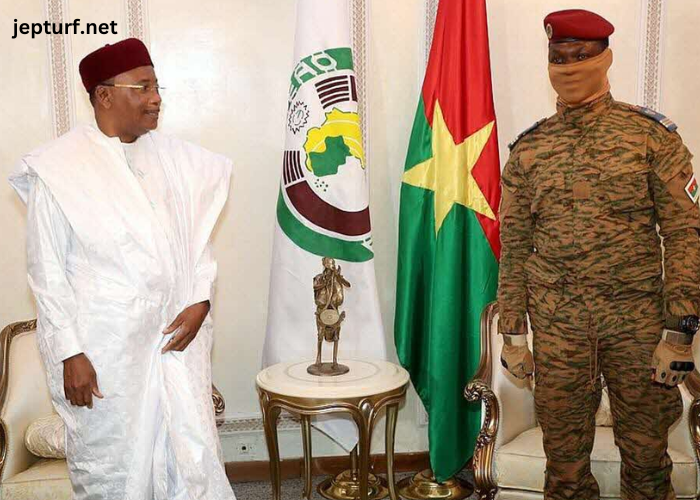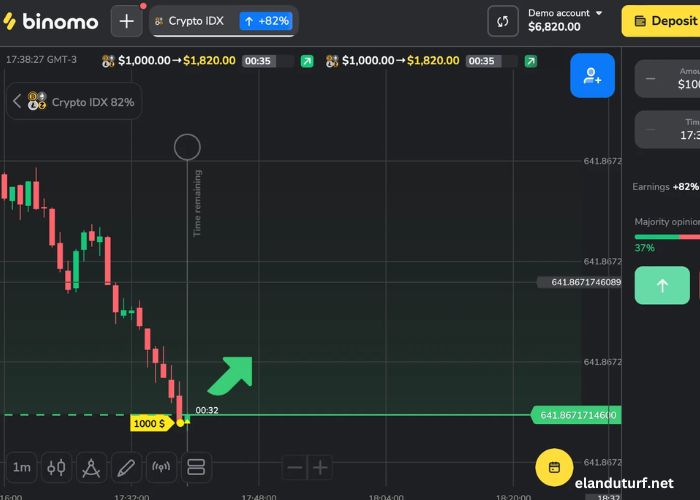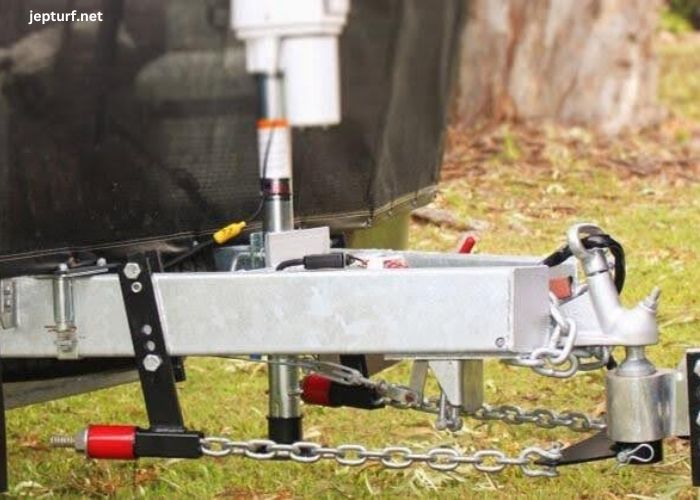Capitaine Ibrahim Traoré is a name that resonates with many in the political and military spheres, especially in the context of Burkina Faso’s turbulent political landscape. As a military officer, his rise to prominence came amidst a backdrop of unrest and military intervention in the country’s leadership. Through a combination of leadership and strategic thinking, Capitaine Ibrahim Traoré has become a symbol of resilience and authority in Burkina Faso’s military operations.
In a country experiencing frequent political instability and security challenges, Capitaine Ibrahim Traoré has emerged as a figure of strength and determination. His leadership during difficult times has earned him widespread recognition and respect, not only within Burkina Faso but also internationally. As the country faces both internal and external pressures, his role in guiding the nation through these challenges continues to grow more significant.
Who is Capitaine Ibrahim Traoré?
Capitaine Ibrahim Traoré is a military officer from Burkina Faso who gained national and international recognition following his involvement in the country’s political and military upheavals. His rise to prominence occurred after he played a pivotal role in the overthrow of Burkina Faso’s former president, Roch Marc Christian Kaboré, in 2022. Capitaine Ibrahim Traoré was part of a faction within the military that took control of the government, citing Kaboré’s failure to effectively address the security threats posed by militant groups in the country.
Capitaine Ibrahim Traoré‘s military career and leadership skills have placed him at the forefront of Burkina Faso’s political landscape. His background in the military, coupled with his strategic approach to tackling security issues, has allowed him to rise through the ranks quickly. Following the coup, Capitaine Ibrahim Traoré became the country’s transitional leader, tasked with restoring stability and combating the growing threat of insurgent groups in the Sahel region.
Known for his pragmatism and resolve, Capitaine Ibrahim Traoré has quickly become a symbol of hope for those who wish to see Burkina Faso regain control over its security situation. His military leadership has been crucial in the fight against armed insurgents who have plagued the region for years, creating a volatile environment for the nation’s citizens.
What challenges does Capitaine Ibrahim Traoré face in leading Burkina Faso?
Leading a country like Burkina Faso, especially during times of political instability, presents numerous challenges. Capitaine Ibrahim Traoré faces the daunting task of restoring law and order in a nation that has experienced a breakdown in governance and security. With armed insurgents and terrorist groups operating in various parts of the country, maintaining peace and security is one of the most pressing challenges facing his leadership.
Another significant challenge for Capitaine Ibrahim Traoré is the need to address the humanitarian crisis that has resulted from the ongoing conflict. Thousands of people have been displaced, and many civilians have fallen victim to violence perpetrated by militant groups. Capitaine Ibrahim Traoré must balance military operations with efforts to provide aid and support to those affected by the conflict. His ability to manage both military and civilian needs will be a key test of his leadership.
In addition to security concerns, Capitaine Ibrahim Traoré must navigate the political complexities that come with being a military leader in a country that has experienced multiple coups. His legitimacy, both domestically and internationally, is often questioned, and he must work to build trust with the people of Burkina Faso and with foreign partners. The challenge of transitioning from military rule to a stable civilian government is a delicate one, and Capitaine Ibrahim Traoré‘s leadership will be judged on how effectively he can balance these competing demands.
How has Capitaine Ibrahim Traoré responded to security threats?
Since assuming leadership, Capitaine Ibrahim Traoré has taken a strong stance against the insurgent groups threatening Burkina Faso. One of his first priorities was to secure the nation’s borders and reinforce military operations aimed at eradicating terrorist cells operating in the Sahel region. His military strategies have focused on intensifying operations against groups such as al-Qaeda and the Islamic State, which have expanded their presence in the country.
Capitaine Ibrahim Traoré has also prioritized building alliances with neighboring countries and international partners to combat the cross-border threats that affect Burkina Faso. His approach includes strengthening regional cooperation and calling for increased support from organizations like the United Nations and the African Union. Through these alliances, Capitaine Ibrahim Traoré aims to enhance the security capabilities of Burkina Faso and create a united front against extremist forces.
In his efforts to address the growing security situation, Capitaine Ibrahim Traoré has advocated for more local involvement in the fight against terrorism. He has promoted the idea that local communities must take an active role in securing their regions, and his administration has worked to enhance the capabilities of local defense forces. This grassroots approach is designed to ensure that security measures are not only top-down but also deeply embedded within local communities.
What is the role of Capitaine Ibrahim Traoré in Burkina Faso’s political transition?
Following the coup in 2022, Capitaine Ibrahim Traoré assumed the role of leader of the transitional government. His leadership during this period is critical in guiding Burkina Faso through a challenging political transition. Capitaine Ibrahim Traoré has pledged to return the country to civilian rule through democratic elections, although this process is expected to take several years.
Capitaine Ibrahim Traoré has worked to reassure both the citizens of Burkina Faso and the international community that his intentions are focused on the long-term stability of the country. His government has laid out a roadmap for reforms, which includes tackling corruption, rebuilding institutions, and holding elections once the security situation improves. However, his leadership remains under scrutiny, with many questioning whether a military-led transition can genuinely lead to a stable democracy.
Despite the challenges, Capitaine Ibrahim Traoré’s role in overseeing the transition is essential for maintaining political stability during this turbulent period. His leadership has been central to ensuring that the country does not descend further into chaos, and his efforts to balance military rule with the push for civilian governance will determine the success of the transition.
How is the international community reacting to Capitaine Ibrahim Traoré’s leadership?
The international community has responded to Capitaine Ibrahim Traoré’s leadership with a mix of support and caution. Some countries, particularly those in the Sahel region, have expressed support for his efforts to combat terrorism and stabilize Burkina Faso. Regional organizations like the Economic Community of West African States (ECOWAS) have been closely monitoring the situation, offering assistance and guidance while advocating for a return to civilian rule as soon as possible.
However, there are also concerns about the legitimacy of Capitaine Ibrahim Traoré’s government. The military coup that brought him to power was condemned by some international bodies, and many foreign governments have emphasized the importance of a quick return to democracy. The challenge for Capitaine Ibrahim Traoré will be to navigate these international pressures while securing the support necessary to achieve his long-term goals for Burkina Faso’s security and political stability.
Overall, the international community’s response to Capitaine Ibrahim Traoré’s leadership is still evolving. While some support his actions against terrorism and his commitment to the country’s future, others remain wary about the effectiveness and sustainability of a military-led transition.
What can be expected from Capitaine Ibrahim Traoré’s leadership moving forward?
Looking ahead, Capitaine Ibrahim Traoré’s leadership will be closely scrutinized as he continues to navigate the complex challenges facing Burkina Faso. The country’s security situation will remain a top priority, and Capitaine Ibrahim Traoré will need to balance military operations with efforts to rebuild the nation’s infrastructure and institutions. His ability to restore peace and security will be a defining factor in his leadership.
As the transition period progresses, Capitaine Ibrahim Traoré will need to demonstrate a clear path toward returning to civilian rule. His government’s success in organizing elections and ensuring that political reforms are implemented will be crucial for his legacy. If he can manage to navigate both the military and political aspects of his leadership successfully, Capitaine Ibrahim Traoré could leave a lasting impact on Burkina Faso’s future.
Conclusion
Capitaine Ibrahim Traoré has proven to be a determined and capable leader during one of Burkina Faso’s most challenging times. His leadership in both military operations and the political transition has placed him at the center of the country’s future direction.
The road ahead will be difficult, but if Capitaine Ibrahim Traoré continues to build on his successes, there is hope that Burkina Faso can emerge from this crisis stronger and more unified. His ability to adapt to changing circumstances and address both security and political challenges will be key to his success.






